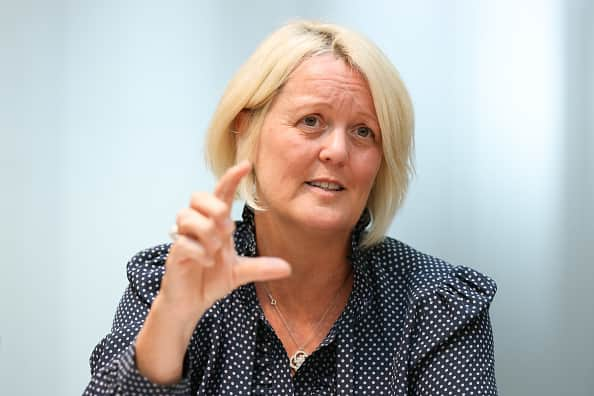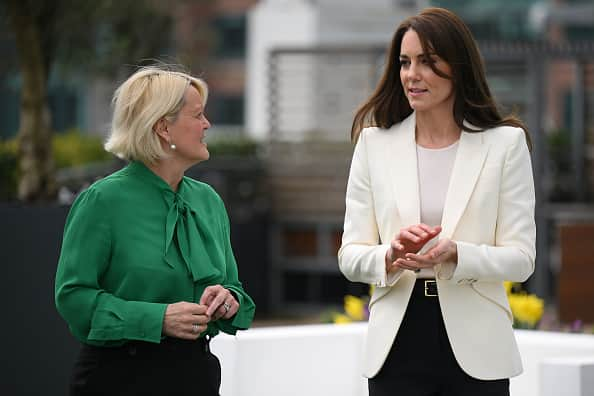Dame Alison Rose, the first woman to lead major British bank quits NatWest - who is she?
and live on Freeview channel 276
Dame Alison Rose, who stepped down as NatWest CEO over ‘inaccurate’ leak of Nigel Farage’s bank account, is a female banking icon who became the first woman to take on the top job at one of the UK’s main four banks in 2019.
At the time, she was simply as Ms Rose, and she took over a bank from New Zealander Ross McEwan, which had stabilised after the financial crisis nearly killed it. However, the then-49-year-old faced significant obstacles as she assumed leadership of the Royal Bank of Scotland (RBS) Group, reported PA.
Advertisement
Hide AdAdvertisement
Hide AdAs a detail-oriented chief executive, her staff would privately complain that her understanding of what was going on at the bank sometimes left them scrambling in response to her questions.
Following Mr McEwan’s big transformation, Dame Alison was considered as a continuity option whose consistency and reputation as a dependable banker would help shepherd the bank through a less volatile period.
The group’s headcount had been reduced from 109,000 to 66,600 in the six years previous her appointment, and it had withdrawn from 26 of 28 countries.
But, as she took over for the first time, it was evident that Dame Alison wanted to make a mark, saying that the bank was still "far too complex" and that "getting things done" was difficult.
Advertisement
Hide AdAdvertisement
Hide AdHowever, one of her first major contributions to the bank was to change its name from the scandal-plagued RBS brand to NatWest.
Prior to the 2008 financial crisis, RBS Group temporarily held the title of world’s largest bank, thanks to a spending spree that included the acquisition of NatWest in 2000 and Dutch bank ABN Amro in 2007. However, by 2020, the eponymous bank had been surpassed within the group by NatWest.


By that time, 80% of RBS Group clients were banking with NatWest rather than RBS branches. It did not escape the notice of keen observers that Dame Alison had also progressed through the ranks of NatWest over a 27-year career before being appointed chief executive.
One of the other key tasks for the chief executive was to oversee a slow transition back to private ownership. When her appointment was announced, the Government still owned 62% of RBS Group, a legacy of the company’s financial crisis bailout.
Advertisement
Hide AdAdvertisement
Hide AdIt was a steady process and by March last year the Treasury finally reduced its stake in NatWest Group to less than half. Perhaps two outside issues came to dominate much of Dame Alison’s time as NatWest Group boss. The first was a gradual switch away from the bank’s more carbon-intensive business.


Just three months into her tenure the group said it would no longer provide funding to oil majors unless they had a “credible plan” to ensure their businesses were in line with the Paris climate agreement.
It followed just days after BP announced a plan to move to net zero, and pre-dated Shell’s own similar promise.
Since then NatWest has announced a series of further ultimatums to its business customers to set in place decarbonisation plans or find another lender. It has also promised billions of pounds in green funding.
Advertisement
Hide AdAdvertisement
Hide AdDame Alison probably expected to deal with climate issues when she took the top job, but her big unforeseen challenge was the Covid-19 pandemic. Alongside other lenders, NatWest was at the forefront of the government’s plan to prop up the economy during lockdowns.
By July 2020, NatWest had already lent £5.8bn to smaller businesses through the bounce back loan scheme, and a further £2.3bn in coronavirus business interruption scheme loans.
That month NatWest posted a £77m loss for the first six months of the year, after it set aside a mammoth £2.1bn to cover loans it thought might go bad largely as a result of the economic shocks of the pandemic.
In 2021 NatWest announced it would exit Ireland, eventually deciding to sell Ulster Bank to PTSB. Later in the year it was hit with a £264m fine in the first-ever criminal prosecution of a bank under UK anti-money laundering laws.
In the 2022 New Year Honours list, Dame Alison was recognised for services to financial services.
Comment Guidelines
National World encourages reader discussion on our stories. User feedback, insights and back-and-forth exchanges add a rich layer of context to reporting. Please review our Community Guidelines before commenting.
